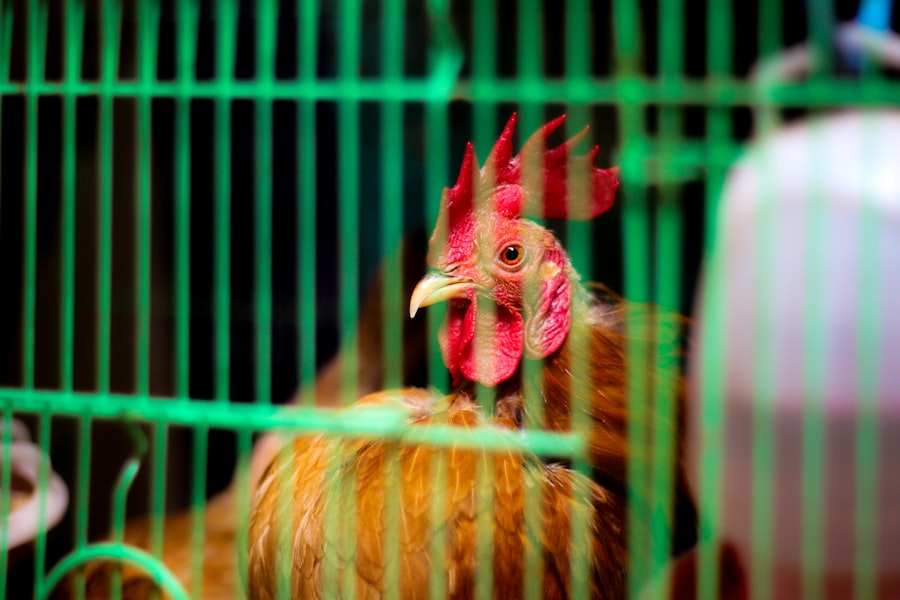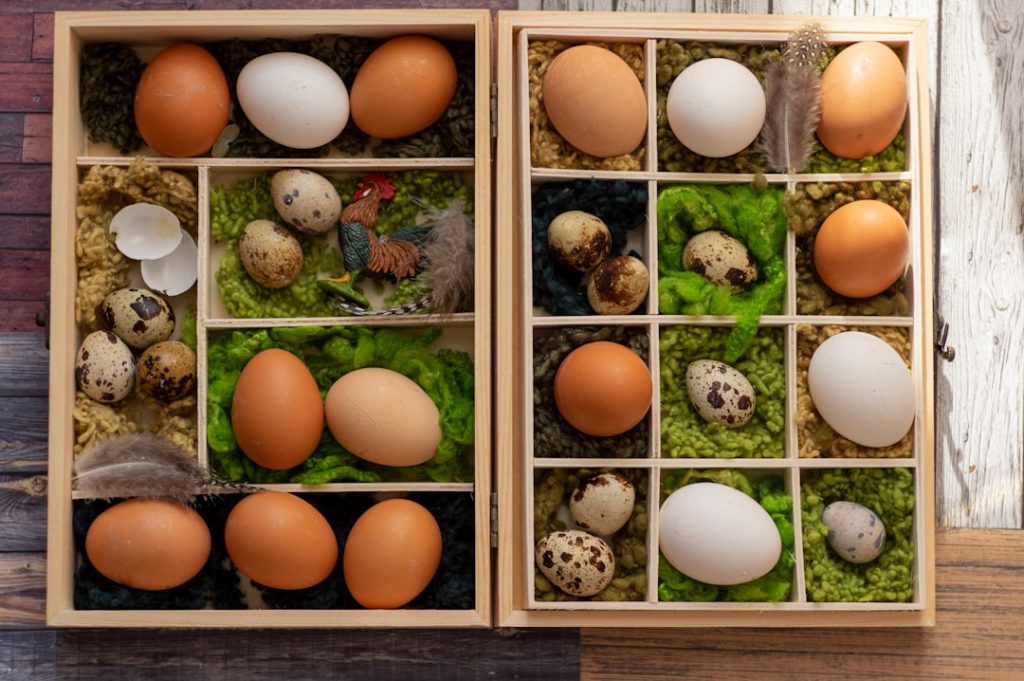Raising chickens is a popular and rewarding activity for many individuals. It offers a sustainable source of eggs and companionship. However, successful chicken-keeping requires understanding essential care practices, particularly for new chickens.
A crucial aspect of chicken care is providing a safe and secure coop. This structure serves as a roosting area, egg-laying space, and shelter from environmental elements. Chickens also require consistent access to fresh water, a nutritionally balanced diet, and regular veterinary check-ups to maintain their health.
When introducing new chickens to a flock, it’s vital to keep them in the coop initially. This practice allows the birds to acclimate to their new environment and helps prevent potential health issues or conflicts with existing flock members. The duration of this confinement period, signs indicating readiness to leave the coop, and proper transition methods are all important considerations.
This article will explore these topics in detail, including the significance of keeping new chickens confined, optimal confinement duration, indicators of readiness for coop departure, transition strategies, common mistakes to avoid, and overall best practices for integrating new chickens into an existing flock.
Table of Contents
- 1 The Importance of Keeping New Chickens in the Coop
- 2 How Long to Keep New Chickens in the Coop
- 3 Signs that New Chickens are Ready to Leave the Coop
- 4 Tips for Transitioning New Chickens out of the Coop
- 5 Common Mistakes to Avoid When Keeping New Chickens in the Coop
- 6 Conclusion and Final Thoughts on Keeping New Chickens in the Coop
- 7 FAQs
- 7.1 How long should I keep new chickens in the coop?
- 7.2 Why is it important to keep new chickens in the coop for a certain period of time?
- 7.3 What should I consider when deciding how long to keep new chickens in the coop?
- 7.4 How can I ensure the new chickens are comfortable during their time in the coop?
- 7.5 When can I start letting the new chickens free-range outside of the coop?
Key Takeaways
- Raising chickens can be a rewarding experience for both beginners and experienced farmers.
- Keeping new chickens in the coop is important to protect them from predators and help them acclimate to their new environment.
- New chickens should be kept in the coop for at least 4-6 weeks to ensure they are healthy and strong enough to explore outside.
- Signs that new chickens are ready to leave the coop include fully feathered bodies, confident behavior, and a consistent egg-laying routine.
- When transitioning new chickens out of the coop, it’s important to gradually introduce them to the outside environment and provide plenty of space and resources.
The Importance of Keeping New Chickens in the Coop
Keeping new chickens in the coop provides them with a safe and secure space where they can become familiar with their surroundings, establish a pecking order with other chickens, and start laying eggs if they’re of laying age.
Protection from Predators and Monitoring Health
Additionally, confining new chickens to the coop helps protect them from predators and reduces the risk of them wandering off or getting lost. Moreover, it allows you to closely monitor their health and behavior. By observing your new chickens in the coop, you can quickly identify any signs of illness or distress and provide them with the necessary care and attention.
Reducing Stress and Ensuring a Smooth Transition
This is particularly important for new chickens that may be more susceptible to stress or illness due to their recent relocation. By keeping new chickens in the coop for an initial period, you can help them feel safe and secure while they adjust to their new home.
How Long to Keep New Chickens in the Coop
The length of time that you should keep new chickens in the coop can vary depending on a number of factors, including the age of the chickens, their previous living conditions, and their overall health and behavior. In general, it is recommended to keep new chickens in the coop for at least two to four weeks to allow them to acclimate to their new environment. This period of time allows the chickens to become familiar with their surroundings, establish a pecking order with other chickens, and begin laying eggs if they are of laying age.
For younger chickens or those that have been recently transported from another location, it may be necessary to keep them in the coop for a longer period of time. This can help reduce the risk of stress or illness that may result from their recent relocation. Additionally, keeping new chickens in the coop for an extended period of time can help ensure that they are well-adjusted to their new environment before being allowed to roam freely.
By providing new chickens with a stable and secure living environment for an initial period of time, you can help them feel safe and comfortable as they adjust to their new home.
Signs that New Chickens are Ready to Leave the Coop
As new chickens acclimate to their coop environment, there are several signs that indicate they may be ready to leave the coop and begin exploring their surroundings. One key sign is when the chickens appear calm and relaxed in their coop, showing no signs of distress or agitation. Additionally, if the chickens have established a pecking order and are interacting peacefully with one another, this is a good indication that they may be ready to leave the coop.
Another sign that new chickens are ready to leave the coop is when they begin laying eggs regularly. This indicates that they have settled into their new environment and are comfortable enough to engage in natural behaviors such as egg-laying. Additionally, if the chickens are showing curiosity about the outside world and seem eager to explore beyond the confines of the coop, this is a good indication that they may be ready for more freedom.
It is important to observe your new chickens closely and look for these signs before allowing them to leave the coop. By waiting until the chickens show these positive behaviors and signs of readiness, you can help ensure that they are well-adjusted and prepared for life outside of the coop.
Tips for Transitioning New Chickens out of the Coop
When it comes time to transition your new chickens out of the coop, there are several tips that can help make the process smooth and successful. One important tip is to gradually introduce your chickens to their new outdoor environment by allowing them supervised access to a fenced-in area adjacent to the coop. This allows the chickens to become familiar with their outdoor surroundings while still having the security of being close to their coop.
Additionally, it is important to provide your chickens with plenty of food and water in their outdoor area to ensure that they have access to essential nutrients and hydration as they explore. By gradually increasing the amount of time that your chickens spend outside each day, you can help them become comfortable with their outdoor environment while still having the security of their coop nearby. Furthermore, it is important to monitor your chickens closely during this transition period and be prepared to intervene if any issues arise.
By providing your chickens with a gradual introduction to their outdoor environment and closely monitoring their behavior, you can help ensure that they adjust successfully to life outside of the coop.
Common Mistakes to Avoid When Keeping New Chickens in the Coop

Overcrowding: A Recipe for Disaster
One of the most critical mistakes to avoid when raising chickens is overcrowding the coop. This can lead to stress, aggression, and a higher risk of illness among your flock. It’s essential to provide your chickens with sufficient space to move around comfortably and establish a pecking order without feeling cramped or confined.
Ventilation: The Key to Fresh Air
Another common mistake is neglecting to provide adequate ventilation in the coop. This can result in poor air quality and an increased risk of respiratory issues for your chickens. Ensure that your coop has proper ventilation to allow fresh air to circulate and prevent moisture buildup, which can lead to mold and mildew.
Nutrition: The Foundation of Good Health
A balanced diet is crucial for maintaining the health and well-being of your chickens. Failing to provide your chickens with a proper diet can lead to health issues and reduced egg production. Ensure that your chickens have access to fresh water at all times and feed them a balanced diet that includes a mix of grains, protein, vitamins, and minerals.
Conclusion and Final Thoughts on Keeping New Chickens in the Coop
In conclusion, keeping new chickens in the coop is an important part of raising healthy and happy chickens. By providing your new chickens with a safe and secure living environment for an initial period of time, you can help them acclimate to their new surroundings, establish a pecking order with other chickens, and begin laying eggs if they are of laying age. It is important to observe your new chickens closely for signs that they are ready to leave the coop and transition them out gradually by providing supervised access to an outdoor area adjacent to the coop.
By avoiding common mistakes such as overcrowding the coop, failing to provide adequate ventilation, or neglecting their nutritional needs, you can help ensure that your new chickens thrive in their new environment. With proper care and attention, your new chickens will adjust successfully to life outside of the coop and become valued members of your flock.
If you’re wondering how long you should keep new chickens in the coop, you may also be interested in learning how to convert a shed into a chicken coop. This article provides helpful tips and guidance on transforming an existing structure into a suitable living space for your feathered friends.
FAQs
How long should I keep new chickens in the coop?
It is recommended to keep new chickens in the coop for at least 1-2 weeks to allow them to acclimate to their new environment and become familiar with their surroundings.
Why is it important to keep new chickens in the coop for a certain period of time?
Keeping new chickens in the coop for a period of time allows them to establish a sense of security and familiarity with their new surroundings, reducing the risk of stress and potential escape attempts.
What should I consider when deciding how long to keep new chickens in the coop?
Factors to consider when deciding how long to keep new chickens in the coop include the age and breed of the chickens, the size and layout of the coop, and the presence of any existing flock members.
How can I ensure the new chickens are comfortable during their time in the coop?
To ensure the new chickens are comfortable during their time in the coop, provide adequate space, nesting boxes, perches, and access to food and water. Additionally, monitor their behavior and make adjustments as needed to promote their well-being.
When can I start letting the new chickens free-range outside of the coop?
Once the new chickens have had time to acclimate to the coop and have established a routine, they can be gradually introduced to free-ranging outside of the coop. This process should be done slowly and supervised to ensure their safety.
Meet Walter, the feathered-friend fanatic of Florida! Nestled in the sunshine state, Walter struts through life with his feathered companions, clucking his way to happiness. With a coop that’s fancier than a five-star hotel, he’s the Don Juan of the chicken world. When he’s not teaching his hens to do the cha-cha, you’ll find him in a heated debate with his prized rooster, Sir Clucks-a-Lot. Walter’s poultry passion is no yolk; he’s the sunny-side-up guy you never knew you needed in your flock of friends!







